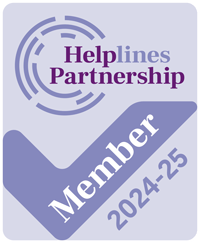WM Research & Data
Clinical trials and getting new treatments into the hands of WM patients depends on quality research and robust data. WMUK is committed to furthering our understanding of WM by collecting data that can improve our knowledge, positively impact treatment access decisions, and provide the evidence needed to influence change at a policy level.



What do we mean by data and Why is sharing your data so important
Data is information held about individuals. When in the
context of health, patient data can refer to a whole range of information such
as your past and current health, your quality of life, what treatments you are
taking or have taken.
By collecting data over a long period of time and from a lot
of patients, researchers can identify trends or patterns in treatments and
care, giving us clues as to what impacts a person’s quality of life and the
outcome of their treatment.
This can be used in a variety of ways:
- Robust data that represents the breadth of WM experience can be used to influence decisions made by bodies such as NICE and SMC, ensuring more equitable access to new treatments
- Informing pharmaceutical companies developing new drugs on patients’ needs, so that they can develop treatments that have the greatest impact for patients
- Provide the evidence we need to advocate for change at a policy level



How does WMUK support data and research?
Data is a core part of the charity’s work; everything we do is based off evidence.
This is the legacy of Rory Morrison, a WM patient whose passion to improve WM knowledge created the Rory Morrison WMUK Registry. The Registry ran for 8 years between 2017 and 2025, collecting clinical data from WM patients.
The data from the Registry is an important bank of information, which was a fantastic data collection tool at the time it was set up. However, when the charity took over the database in 2023, we found the data to be incomplete and not representative of all WM patients.
We spent time cleaning the existing data, but in an external climate of digitisation and recognition of the important of real world data, our focus on data has shifted to a more patient-focused, forward-leaning approach.
How can I get involved with data and research?
Our new platform will harness the power of technology to help patients to navigate an increasingly digital healthcare system, whilst giving us the data to push through improvements in care and access to new treatments.
We’ll soon be letting you know more about this project. In the meantime, be sure to sign up to our mailing list so you’ll get the latest updates.




